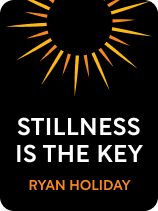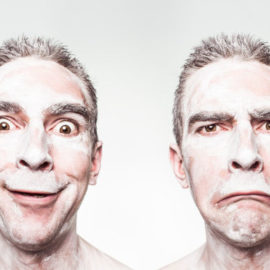

This article is an excerpt from the Shortform book guide to "Stillness Is the Key" by Ryan Holiday. Shortform has the world's best summaries and analyses of books you should be reading.
Like this article? Sign up for a free trial here.
Do you always feel mentally tired? What are some things you can do to increase your mental energy so you can focus for longer and think more effectively?
The best way to increase your mental energy is to eliminate the amount of information you consume. This will give you more mental bandwidth to devote to mentally taxing pursuits.
With this in mind, here are some tips on how to increase mental energy and focus.
How to Get More Mental Bandwidth
Holiday says our mental states are affected by the news and other information we consume. Anything you read or listen to will influence your mind, often in detrimental ways. So, if you want to know how to increase mental energy, one thing he advises is that you should limit your exposure to the news and don’t consume it in real time. Instead, give it a few days—this will naturally sort out what’s important to your life and what’s not. Put simply, the important information will still be important later and the unimportant won’t. By waiting and only consuming what is crucial, you can avoid wasting mental energy on information that doesn’t matter.
Holiday points out that the need to constantly be “informed” and up to date on everything is rooted in ego. We fear looking ignorant and being left out or left behind. In reality, it’s not necessary to know what’s going on all over the world at all times. Most of it is a waste of your valuable time, and because the media sensationalizes everything and focuses on the negative, the consumption can clutter and disturb your mind.
| Dealing With FOMO The contemporary acronym FOMO refers to the “fear of missing out” and describes the envious perception that others are living better lives without you. Many people are plagued by the sense that their lives are lacking because at any given moment, they’re missing out on something. Experts say this phenomenon has become such a popular concept because it’s encouraged and exacerbated by social media, which skews our perception of what’s “normal” and of how people live. Because social media posts are the highlights of our lives, it appears that everyone else is always having more fun than you are. To combat unhealthy feelings of FOMO, psychologists suggest you: – Seek out in-person experiences and relationships over online ones. This gives you a better perspective on reality. – Do a digital detox. Take breaks away from social media and/or set daily time limits for yourself. –Keep a gratitude journal. This will allow you to focus on what’s good in your own life, rather than obsessing over what you might be missing out on. |
Analysis Paralysis
Holiday says taking in too much information on a daily basis can cause “analysis paralysis,” a state when your mind becomes overwhelmed to the point where you can’t make good decisions and you become unproductive. In order to cultivate stillness, Holiday says you need to prioritize your tasks (and the mental energy that each requires). To do this, he advises ordering your priorities using the “Eisenhower Box.” This method involves sorting your tasks into four categories:
- Important and time-sensitive: Do it now.
- Important but not time-sensitive: Schedule a later time to do it.
- Less important but time-sensitive: Delegate it to someone else if possible.
- Important and not time-sensitive: Eliminate it.
Holiday points out that most truly important stuff isn’t actually time-sensitive, so it should be given space, time, and contemplation. When you organize your life this way, you may see that you spend too much time on unimportant tasks. Eliminating those distractions will free your mind for stillness.
(Shortform note: James Clear, self-help speaker and author of Atomic Habits, says there is no faster way of doing a task than not doing it at all. He says one of our biggest productivity blocks is spending time on things we really don’t need to do. For him, the Eisenhower Box is an excellent tool for identifying those unimportant tasks. He argues, in fact, if we were to eliminate all of the unnecessary tasks we do on a daily basis, we probably wouldn’t even need any other productivity strategies.)

———End of Preview———
Like what you just read? Read the rest of the world's best book summary and analysis of Ryan Holiday's "Stillness Is the Key" at Shortform.
Here's what you'll find in our full Stillness Is the Key summary:
- Why stillness is not just the absence of motion
- How to cultivate stillness in your mind, body, and soul
- Why you should start ignoring the news






